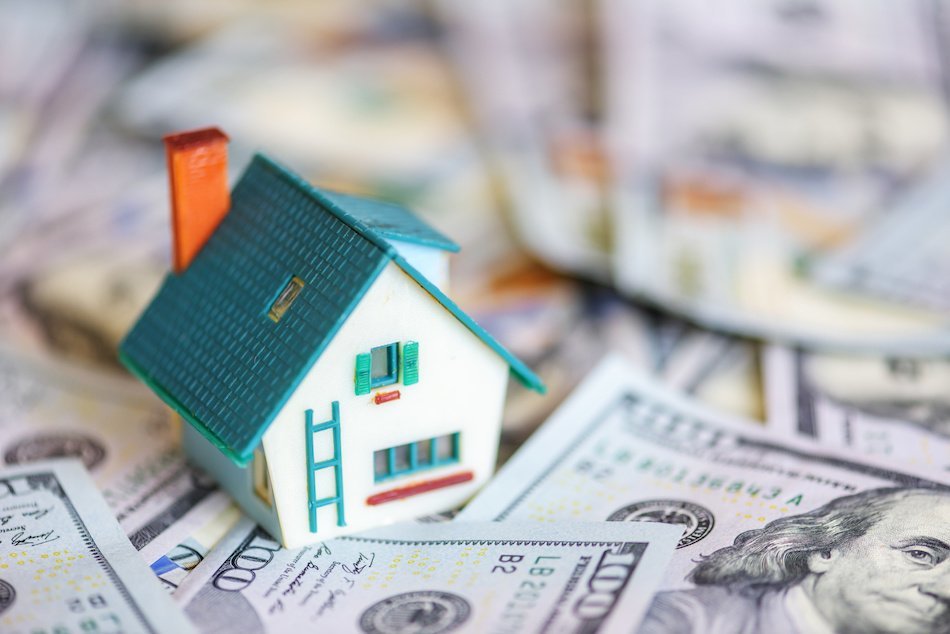How Do First-Time Home Buyers Make a Down Payment?
Posted by Gary Ashton on Friday, September 7th, 2018 at 3:35pm.
 Home down payments can be a significant expense for a first-time buyer, who might not be able to pay as much towards a down payment as someone who already owns a home and is able to sell it in order to finance the purchase of their next home. This can put first-time home buyers at a disadvantage in the home-buying market and raise important questions as they struggle to put together the money necessary to make the down payment on a home.
Home down payments can be a significant expense for a first-time buyer, who might not be able to pay as much towards a down payment as someone who already owns a home and is able to sell it in order to finance the purchase of their next home. This can put first-time home buyers at a disadvantage in the home-buying market and raise important questions as they struggle to put together the money necessary to make the down payment on a home.
How much should I put down on a house in Nashville TN? Are there alternatives for those who can't afford the traditional 20 percent down payment requirement? Is a down payment required when buying a home? How much do down payment requirements vary from lender to lender?
With the answers to these questions, prospective home buyers will have a better idea as to how much money they need to save for a down payment, and ways that they might be able purchase a home despite a lack of funds.
Why Are Down Payments Required?
Since most people cannot afford to buy homes entirely in cash, many instead are required to qualify for a mortgage, and thus a down payment, in order to finance a home. Can you buy a house with no down payment? Lenders often worry about borrowers who get the money with little to no personal investment in the purchase. A mortgage is a legally binding document with serious repercussions for breaching that contract. Lenders often find that someone who has personally invested their own money into the property in order to buy it will be more likely to make mortgage payments on time. That initial investment is known as the down payment.
What Is the Standard Down Payment?
There are multiple opinions on what qualifies as a "standard" down payment. Though widespread belief holds that a 20 percent down payment is the norm, the truth is that mortgage lenders can set their own down payment requirements. More than a decade ago, it may have been possible to find lenders who were willing to open mortgages with no down payment at all. After the housing crisis, however, lenders tightened their lending standards. These days, expect lenders to request a down payment of 10 to 20 percent of the loan's value, with a handful of exceptions. This payment does not include closing costs, discount points, moving expenses or anything that has to be done to the home before you can move in.
Why is Putting 20% Down on a House Recommended
There are all sorts of obstacles that you have to deal with when you find yourself in the market for purchasing a new home. A number of different studies have been conducted which have all concluded that the most difficult challenge to becoming a homeowner is pulling together enough money for the down payment. The real question is: what exactly is a down payment anyway?
Increases Chances of Getting a Mortgage
Most mortgage providers require you to be able to prove that you can come up with at least 20 percent of the total cost of the home on your own before they will consider giving you a mortgage. Making a down payment of at least 20 percent is the easiest way to show the bank you are trying to get the mortgage through that you are capable of doing that.
Smaller Mortgage Payments
Everyone likes smaller bills right? The more money you put on as a down payment, the smaller your mortgage payment is going to be every month. This is because the more money you use to buy the house, the less money you have to borrow.
If you are trying to decide whether or not it is the right time to purchase a house, you just need to ask yourself whether you can pay 20 percent of the asking price. If you can, then you are ready to purchase a house.
Are There Options for First-Time Home Buyers?
Paying 10 to 20 percent down in cash can be a difficult prospect for first-time home buyers. People who already own a home can sell their current homes and use the profits from the sale to make a sizable down payment on a new home without having to save up for it. First-time home buyers must use other means. As a result, many lenders offer loan programs targeted primarily at first-time home buyers, which require a much smaller down payment. How much will my house payment be? Loans guaranteed by the Federal Housing Administration (FHA) may have down payments as low at 3.5 percent. Loans conforming to the standards of Fannie Mae and Freddie Mac could allow first-time home buyers to make a 3 percent down payment, if they qualify.
Options With Flexible Requirements
 If a homeowner cannot make the requirements of a typical down payment on a house through a conventional loan, other loan programs exist through which buyers may still be able to finance a home purchase. Many of these loan programs offer reduced down payment requirements to help prospective homeowners get into a new Nashville home. These loan options include the UDSA loan, the FHA loan, and the VA loan, all of which offer low or reduced down payment requirements for home buyers.
If a homeowner cannot make the requirements of a typical down payment on a house through a conventional loan, other loan programs exist through which buyers may still be able to finance a home purchase. Many of these loan programs offer reduced down payment requirements to help prospective homeowners get into a new Nashville home. These loan options include the UDSA loan, the FHA loan, and the VA loan, all of which offer low or reduced down payment requirements for home buyers.
The USDA Home Loan
USDA home loans are loans guaranteed by the United States Department of Agriculture and are intended to help low-income families purchase homes in rural communities. USDA loans require zero money down towards the cost of the home, and they also offer lower credit score and income requirements, making it much easier for applicants to transition into a residence more immediately. USDA loans have strict requirements in terms of who qualifies for the loan program, but because the loan is guaranteed up to a percentage of the home's cost by the Department of Agriculture, lenders are able to offer better terms for any applicants who qualify. For a household to qualify for a USDA loan, they must:
- Be without safe housing at the time of their loan application
- Meet strict income requirements set by the Department of Agriculture
- Be unable to qualify for a home loan through other avenues
- Be purchasing the home as a primary residence
If homeowners do not meet the requirements for a USDA loan, they may still consider the FHA and VA loan options.
The FHA Home Loan
FHA home loans are similar to the USDA loan in that a percentage of the loan amount is guaranteed by the Federal Housing Administration. This means that if a homeowner stopped making payments on the home, the Fair Housing Administration would pay the lender a portion of the home's cost, ensuring that they having lost as much money. This guarantee enables lenders to be less stringent with their lending requirements for homeowners in terms of credit score, debt-to-income ratio, and down payment. The FHA loan program allows home-buyers to make down payments as low as 3.5 percent in exchange for paying private mortgage insurance (PMI) over the life of the loan. This lower down payment enables homeowners to pay their down payment more easily when they find a house that suits their needs.
The VA Home Loan
Originating as a part of the GA Bill of Rights in 1944, the VA home loan program is a mortgage option through which veterans and active service members are able to apply for home loan with more lenient requirements to help ease their transition back into society and thank them for their service. VA loans do not require any money down for the loan, offer lower interest rates, caps on closing costs, and are guaranteed by the Department of Veteran Affairs. To qualify for a VA loan, applicants must:
- Serve in active duty with a discharge other than dishonorable
- Have a minimum of either 90 days of wartime service or 181 days of peacetime service served continuously
- Complete two years of service, if enlisted after September 7, 1980
- Complete six years of service, if in the National Guard or Coast Guard
Homeowners must acquire a Certificate of Eligibility (COE) and pay a VA funding fee in order to utilize the VA loan program, but the fee may be waved if the applicant is disabled or deceased.
How Much Should I Put Down?
Although many people will say to put down as little as possible, it's important to weigh all the options. Keep in mind that any loan with a down payment of less than 20 percent will likely require private mortgage insurance (PMI), which is an additional expense that could add up to $100 or more to your monthly mortgage payment. However, a smaller down payment also frees up more funds for closing costs, moving expenses, and improvements needed in the home in the first few years of ownership. Keeping at least a few thousand dollars available after you move in is a wise move, if you can manage it.
Making that first down payment is often one of the hardest parts of home ownership for a first-time home buyer. Sometimes, a low down payment is what's needed in order to buy a home at all. With these tips, it's possible to secure a lower down payment on a mortgage loan.

Gary Ashton
The Ashton Real Estate Group of RE/MAX Advantage
The #1 RE/MAX team in the World!
